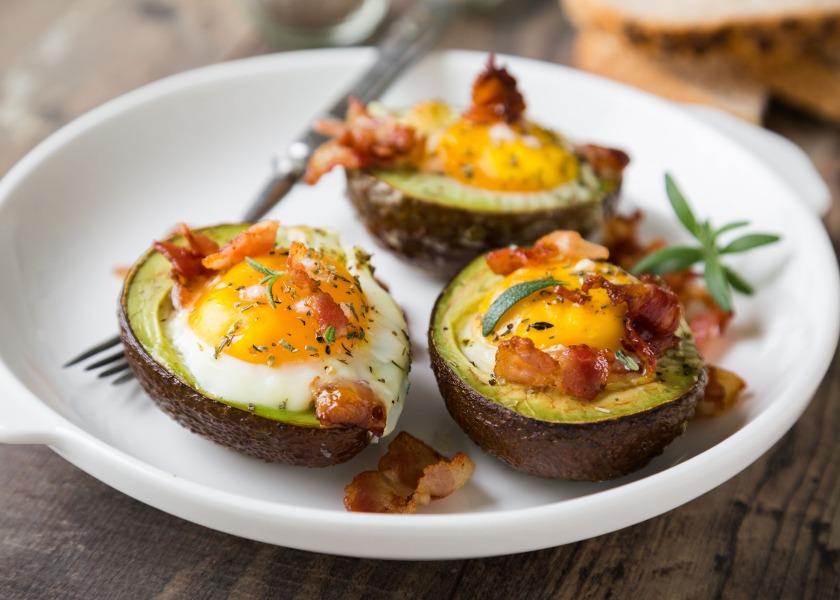California avocado foodservice rebound continues

Foodservice avocado sales seem to be slowly rebounding after the rollercoaster ride they endured during the COVID-19 pandemic.
Before the pandemic, various sources estimated that foodservice accounted for about 35% of avocado sales, said Jan DeLyser, vice president of marketing for the Irvine-based California Avocado Commission. “During 2020, sales to foodservice initially plummeted and then increased steadily as foodservice operators pivoted to mainly takeout and delivery,” she said. “Foodservice sales still have not returned to pre-pandemic levels, but we are optimistic that they will do so once pandemic-related challenges, including labor shortages, are resolved,” DeLyser said.
Two years into the pandemic, foodservice sales haven’t fully recovered, agreed Doug Meyer, senior vice president of sales and marketing for West Pak Avocados Inc., Murrieta, Calif. But barring another variant such as omicron, spring and summer are expected to be good recovery periods for the entire foodservice industry, he said. Quick- and full-service restaurants already are slowly recovering as dining-out makes a comeback, Meyer said. “Takeout and delivery have continued to do well and are here to stay at significantly higher than pre-COVID levels,” he said.
The drop in foodservice business for Calavo Growers Inc., “was really dramatic,” said Rob Wedin, executive vice president of national fresh sales for the Santa Paula, Calif.-based company. “Two years ago, the doors just closed — with some exceptions,” he said. But foodservice sales are making a comeback. “More and more of our biggest foodservice customers are coming back with more orders and plans for more menu items,” Wedin said. Up to 25% of the company’s business is with foodservice accounts, he said. During the pandemic, that figure plummeted to 5%-10%.
Read related: California avocado crop size, prices up this season
Sales to foodservice operators went up and down, depending on region, the prevalence of COVID-19 and the pandemic-related restrictions imposed on consumers, said Gahl Crane, sales director for Temecula, Calif.-based Eco Farms, which is the avocado division of Oppy, in Vancouver, British Columbia. “There was less demand as (COVID-19) numbers got high, particularly in California,” he said. But sales in some places did not change. Since the summer of 2021, he said, “things have been quite strong and steady for foodservice. “A little hiccup” occurred around Christmas and New Year’s when the omicron variant peaked, but overall, foodservice business has been solid, he said. “There’s a huge demand for eating out and partying and events.” Most restaurants have returned to indoor dining, as well as outdoor seating, and they’re open at full capacity, Crane said.
The pandemic had a significant impact on foodservice business at Henry Avocado Corp., Escondido, Calif., said President Phil Henry. The shockwave hit in mid-March of 2020 when restaurants began to shut down. “In areas where we really had significant shutdowns, like California, our sales dropped in half basically over a week or two,” he said. The effect on business at Henry Avocado was especially impactful because restaurants and other out-of-home dining options make up about half of the company’s sales. Some of that loss was made up by an increase in retail sales, and over the ensuing months, some foodservice distributors began to rebound somewhat, he said.
By the end of 2020, foodservice sales were beginning to recover, but not to the extent Henry thought they should considering the plentiful supplies that were available and the favorable pricing. “Demand should have been much stronger for the whole industry,” he said.
That weakened demand continued last year, with some restaurants closing permanently and others cutting their hours or reducing menu options.
Labor shortages also affected sales. “Hopefully, with the decline we’re now seeing in the number of COVID cases, restaurants will be doing better,” Henry said.







